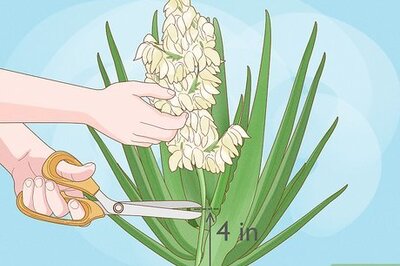
views
Not everyone might realise it, but parents - whether they’re working professionals or not - experience a lot of pressure. They themselves might never call what they do for their children a “job” or “work”, but providing for children, caring for their physical, emotional and educational needs, keeping them healthy and bringing them up in safe spaces requires a lot of hard work. Parenting comes with its own set of stresses, and the chronic stress of parenting can turn into parental burnout and so we spoke to Geetika Kapoor, Consultant School and Child Psychologist, to understand its signs.
Many parents don’t realise that parental burnout is a real thing and that emotional exhaustion is most often to blame for it. You might think that emotional exhaustion is not a big deal - and a lot of parents think they can power through their own needs when they need to prioritise the well-being of their children.
But the fact is that emotional exhaustion not only compromises your health - physical and emotional - but also impairs your ability to take care of your children. So, instead of brushing your own needs under the rug, what you need is perspective. Recognising the signs of emotional exhaustion is the first step in being able to deal with it.
The following are the major signs of emotional exhaustion all parents should look out for:1. Prolonged irritability: Feeling irritated once in a while is quite different from feeling irritable for most of your waking hours. When you find yourself being irritable all day, and especially at the littlest things, you need to take a step back and analyse your feelings and condition.2. Angry outbursts: Emotional fatigue often manifests in the form of angry outbursts, which often indicate the need to distance yourself from interaction with others. Lashing out is a clear sign of frustration, and addressing this before it takes a nasty turn is important.3. Emotional numbness: It’s only when you’re emotionally exhausted that you feel a sense of complete numbness or a state where all you have is the inability to feel. Finding yourself in such a blank emotional space can be alarming, but you need to find your way back from this.4. Staying aloof: It’s quite natural to retreat into a shell when faced with overwhelming situations, but it’s also a sign of emotional exhaustion. If you find yourself staying aloof, avoiding interactions and preferring isolation, you should definitely reach out for help.5. Pessimistic outlook: Not being able to see the bright side of things, feeling hopeless about the present and future and meeting every situation with the idea that things are unlikely to get better, are all indications that you’ve reached a state of emotional burnout.6. Lack of concentration: If you find yourself feeling jumpy and unable to focus on the task at hand - and if this is coupled with some or all of the above-mentioned signs - you are likely to be suffering from emotional exhaustion.For more information, read our article on Emotional care for parents.Health articles on News18 are written by myUpchar.com, India’s first and biggest resource for verified medical information. At myUpchar, researchers and journalists work with doctors to bring you information on all things health.




















Comments
0 comment